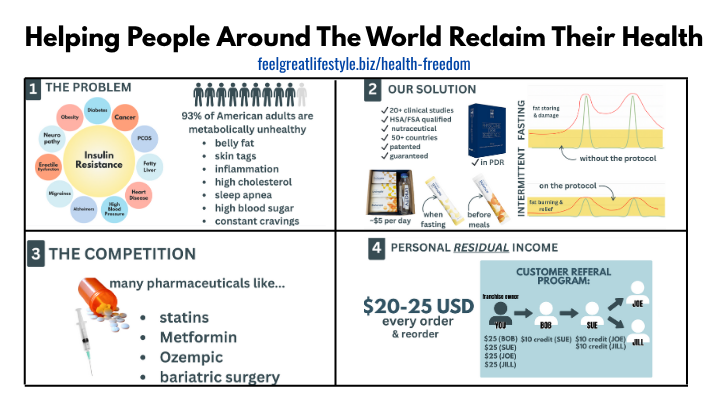Debunking the Myth: Why Updating Applications is Crucial for Business Success
If you run a business today—whether it's a small startup, an established enterprise, or even in the fast-moving worlds of crypto and blockchain—you've likely heard mixed opinions about updating your software applications. Some say it’s a hassle, time-consuming, or unnecessary if things “are working fine.” But here’s the reality: regularly updating your applications isn’t optional; it’s a fundamental ingredient for business success.Let’s take a quick, straightforward look at why updating your applications matters so much, dismantle common misconceptions, and give you actionable insights to keep your business ahead of the curve.1. The Myth: “If It Ain’t Broke, Don’t Fix It”Many business owners think updating software is only necessary when something breaks or stops working.
The assumption is that if your current application is stable and functional, why risk downtime or unexpected glitches by updating?Reality Check: Software updates are rarely about fixing something already broken—they’re about improving, protecting, and future-proofing your systems.Updates often patch security weaknesses before hackers exploit them.
They add features that improve efficiency and user experience.They fix small bugs you might never have noticed but that could gradually degrade system reliability.Vendors improve compatibility with new technology trends and evolving standards.Imagine you’re running crypto trading software or blockchain nodes—missing an update could leave you vulnerable to security breaches, or cause your system to lag behind more innovative competitors who use the latest tools.2. Security Isn’t Just IT’s Problem — It’s Your Business’s BackboneThe digital world is full of risks, from malware attacks to data breaches. Each unpatched application is a doorway for cybercriminals. If your system gets compromised, the fallout can be catastrophic: lost revenue, damaged trust, regulatory fines, and a reputation hit that can take years to repair.Keeping apps updated is the single most effective line of defense against cyber threats.Developers release security patches in updates to seal vulnerabilities.
Outdated software remains a top target for hackers.Even high-profile companies lose millions due to preventable breaches linked to outdated apps.A secure business attracts customers, partners, and investors who value privacy and data protection, especially in industries tied to financial tech, blockchain, or healthcare.3. Updates Drive Business Efficiency and Innovation
Updates are more than just “housekeeping.” They unlock new capabilities that can transform how you operate.Faster performance and smoother workflows mean your team wastes less time on glitches.New features can automate tasks, improve analytics, or integrate with other cutting-edge systems that keep you competitive.In crypto or blockchain, updates might enable new token standards, faster transaction handling, or enhanced privacy.Staying updated directly supports innovation. Businesses that hesitate risk stagnation and losing market relevance.
4. Avoiding Update Downtime: Planning and Best PracticesOne common fear is that updating software causes downtime or disrupts critical operations. Yes, updates can sometimes introduce bugs or require temporary outages, but these risks are manageable with good planning:Test updates in controlled environments before full rollout.Schedule updates during off-peak hours.Maintain backups and rollback plans.Use cloud services or containerized apps to streamline deployments.For SMEs and enterprises alike, adopting a proactive update strategy reduces downtime and supports smooth operations.
5. Customer Experience Depends on Being Up to DateThink about the last time you used an outdated app with slow load times, crashes, or missing modern features. You probably switched to a competitor right away.Your customers expect fast, reliable, secure, and modern experiences—and so should you.Updates often improve interface design and remove bugs that annoy users.They ensure compatibility with multiple devices and browsers.For blockchain or crypto wallets, security updates build confidence and trust.Ignoring updates risks alienating customers and damaging your brand reputation.6. Compliance and Regulatory RequirementsCertain industries have strict compliance and regulatory standards—GDPR, HIPAA, PCI-DSS, and many more demand up-to-date software to protect data privacy and operational integrity.Outdated software can put you out of compliance, leading to hefty fines.Updates help align your applications with evolving legal frameworks.It's not just about avoiding penalties; it's also about demonstrating commitment to ethical business practices and customer respect.
7. How to Cultivate an Update-Ready Culture in Your BusinessTo avoid playing catch-up or neglecting critical updates, establish habits that streamline the process:Assign responsibility for updates to IT or management teams.Create a clear update schedule and hold regular reviews.Educate employees on the importance of updates and encourage timely adoption.Use automatic updates when possible to reduce manual effort.This mindset shift turns updates from a dreaded chore into a routine part of your business strategy.8. Real-life Examples: Companies That Thrived by Embracing UpdatesMicrosoft: Regular feature and security updates keep Windows and Office products competitive and secure for millions of users worldwide.Coinbase: This crypto exchange constantly updates its platform for enhanced security, user features, and compliance, maintaining its position as a market leader.Startups with blockchain apps that regularly update protocols survive forks, integrate community improvements, and grow faster than competitors stuck on outdated software.9. What Happens If You Don’t Update? The Risks in a NutshellSecurity breaches and data theftLoss of customer trust and competitive edgeCompliance violations & legal penaltiesHigher costs over time due to emergency fixes or reworkSlower performance and buggy user experiencesMissing out on innovation opportunitiesWrapping It Up: Make Updates Your Business Ally, Not Your EnemySkipping or delaying updates is like leaving your front door unlocked in a rough neighborhood. It’s risky, unnecessary, and ultimately costly. Keeping your business applications current is a smart, proactive way to protect and grow your enterprise.If you want your business to keep thriving, especially in today's fast-evolving tech landscape, embrace updates as an essential investment in resilience, security, and innovation.Need a Hand? Here’s How to Get StartedAudit your current software applications.
Identify critical updates and schedule them.Consider tools for automated patch management.Partner with IT experts or consultants if you lack in-house resources.Stay informed about industry-specific software trends and standards.
Taking these steps now builds a future-proof foundation for success.
If this resonates, share it with your business community or team to spread the word on why updating apps is fundamental—not a burden HERE.
No comments yet

